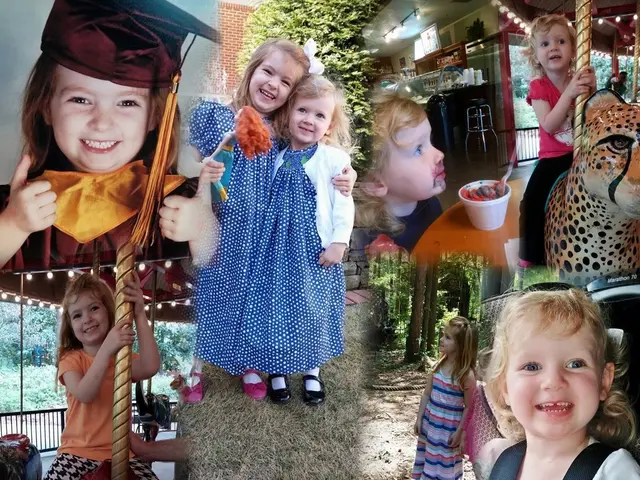Life Game: From Starting Line to Finish Line: A Journey Through the Stages of Life
There is a growing sense of disorientation among some young adults as they grapple with reconciling societal expectations and their personal visions of the future. With uncertainty about their place in the world, many in their late 20s are questioning their progress and direction. But why are so many young adults feeling lost at the end of their 20s?
A study from the German Institute for Economic Research indicates that young adults today are making significant life decisions such as home purchases and starting families later than they did just two decades ago. Another study shows an increase in the number of young adults feeling lost or overwhelmed over the past five years. These trends suggest that we are navigating a period of transition, somewhere between the starting line and the finish line.
Through a series of interviews with 30 individuals under 30, our website examined the themes preoccupying their minds. These themes formed the basis of a series of articles aimed at discussing the issues, offering potential solutions, and creating a platform for discussion. One participant, Flo (28), said, "I'm starting to feel this funny in-between stage. I used to think that people in their 30s and late 20s had everything under control and were well on their way. I've realized that may not be the case." This series can be found on our website every Thursday.
The constant comparison on social media may contribute to these feelings of being lost. Social media platforms showcase achievements like new jobs, engagements, baby bump announcements, and viral trends. Filters enhance the shine. On the other hand, there are friends who have no clear plans for the future. Many jobs don't live up to their promises. Ideas gather dust in the idea drawer. Yet, the focus always remains on moving forward. This pattern suggests a symptom of our achievement-oriented society.
Perhaps life doesn't follow a unified game plan. While some have a clear strategy, others continue to gather pieces to plan their next moves. And that's okay. I try not to measure my progress by the achievements of others. Their home, their child, their happiness—that's their game. I'm still figuring out my moves. Maybe it's not about reaching the most points in the end. Maybe it's just about enjoying the journey as much as possible.
Each of us is playing a different game. The best part: We can determine our own rules, within the boundaries imposed by society. So what remains? A peculiar phase of transition—feeling unmoored but not completely lost. It's okay to have questions, it's okay to feel unsure, because the game of life has many rounds—and each one plays out differently.
While direct, Germany-specific studies on this exact age group are limited, broader research and contemporary social trends offer valuable insights. In the following sections, we will delve deeper into the reasons behind these feelings of being lost, the impact on young adults in Germany, and suggestions for navigating this unique phase of life.
Key Reasons for Feeling Lost or Overwhelmed
1. Social and Emotional Transitions
- Loneliness and Isolation: Loneliness is particularly high among younger people globally. It can stem from shifting social circles, disrupted relationships, or feeling misunderstood by others.
- Changing Identity: The transition from late adolescence to adulthood brings an evolving sense of self-identity, leaving some young adults seeking clarity about their values and purpose in life.
2. Expectations and Societal Pressure
- Redefining Milestones: Young adults are challenging traditional milestones such as marriage, home ownership, and long-term careers, leading to tension with older generations and societal expectations.
- Authenticity and Self-Expression: There is a strong desire among young adults to be authentic and true to themselves, but balancing this with social and professional expectations can be challenging.
3. Career and Economic Challenges
- Uncertain Job Market: The modern employment landscape is less secure, with fewer opportunities for lifelong careers at a single company, leading to anxiety and uncertainty about the future.
- Financial Constraints: Economic pressures, such as housing costs and student debt, contribute to stress, a sense of being stuck, and difficulty achieving traditional adult milestones.
4. Mental Health and Well-being
- Mental Health Stresses: The prevalence of mental health issues is rising among young adults, with conditions such as anxiety and depression often exacerbated by loneliness, social comparison, and career stress.
- Overlooked Needs: Many young adults feel that standard advice—such as simply socializing more—does not address deeper issues like lack of social skills, previous failures, or the absence of meaningful relationships.
Studies and Statistics in Germany
- User Needs in Mental Health: A recent German study explored the needs of young people facing mental health challenges, particularly in the context of gender distress. It highlighted that young adults often struggle with ambivalent or unmet treatment needs, pointing to a gap in available support and tailored interventions.
- Loneliness and Mental Health: Studies indicate that loneliness is a significant risk factor for poor mental health, particularly in young adults. As a result, new approaches to foster meaningful connections are being called for.
- The growth in home-and-garden and lifestyle trends could be a reflection of young adults' desire for personal growth and self-expression, as they seek to carve out their unique identities amidst societal expectations.
- In the context of career development, it's crucial for organizations to create an environment that supports education-and-self-development, allowing young adults to find their footing in a rapidly changing job market and achieve greater authenticity within their professional paths.







